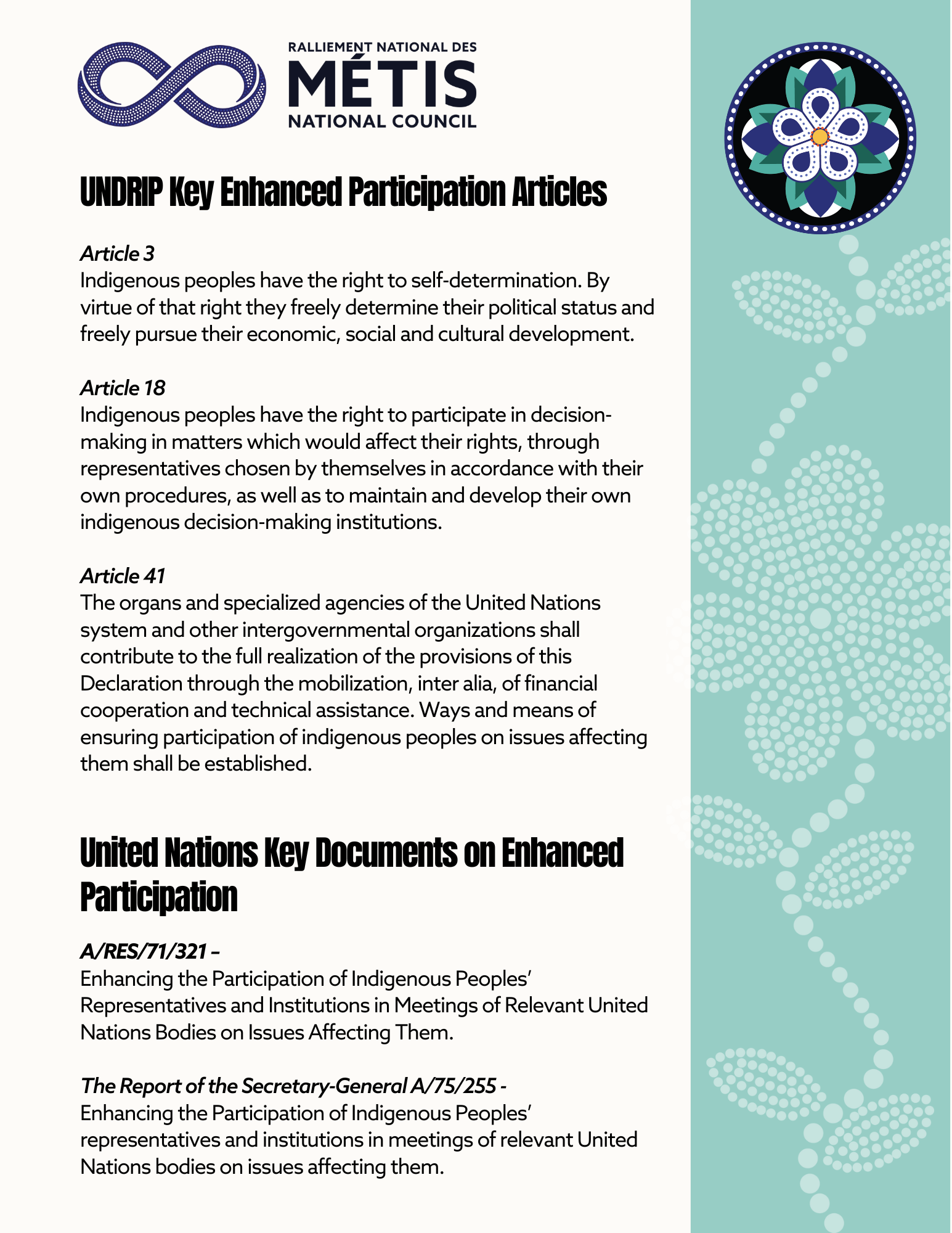Enhanced Participation of Indigenous Peoples at the United Nations
Enhanced Participation of Indigenous Peoples
Since their initial attempts to engage with the League of Nations in the 1920s, Indigenous Peoples have consistently sought the cooperation of the international community, including the United Nations and its various agencies, funds, and programmes. Although their request to address the League of Nations was denied in 1923, their participation at the United Nations and its associated entities has increased over the years, leading to significant achievements and progress. These include the adoption by the General Assembly of the United Nations Declaration on the Rights of Indigenous Peoples by an overwhelming majority of Member States in September 2007; and the establishment of three specific mandates: the Permanent Forum on Indigenous Issues, the Special Rapporteur on the rights of Indigenous peoples and the Expert Mechanism on the Rights of Indigenous Peoples.
On 8 September 2017, the United Nations General Assembly adopted resolution A/RES/71/321 entitled “Enhancing the Participation of Indigenous Peoples’ Representatives and Institutions in Meetings of Relevant United Nations Bodies on Issues Affecting Them.” The resolution is a result of a process that began during the World Conference on Indigenous Peoples in 2014. In the outcome document, Member States committed to consider ways to enable the participation of Indigenous People’s representatives and institutions in meetings of relevant United Nations bodies on issues affecting them, including specific proposals made by the Secretary-General.
Although significant progress has been made over the last century, the current situation still requires Indigenous Representatives to register as Non-Governmental Organizations (NGOs) with consultative status to the Economic and Social Council (ECOSOC) to participate in United Nations Forums. However, Indigenous Peoples have consistently contended that they are independent representatives not comparable to NGOs.
Enhanced Participation and the Métis Nation
The Métis National Council advocates for the establishment of a distinct category or status within the UN framework that explicitly recognizes the unique identity and role of Indigenous Peoples. The primary objective in the pursuit of enhanced participation is to secure the rightful representation and active involvement of Indigenous Peoples in decision-making processes that directly affect their communities. Securing this position would ensure direct representation of Métis citizens’ voices at the international level.


